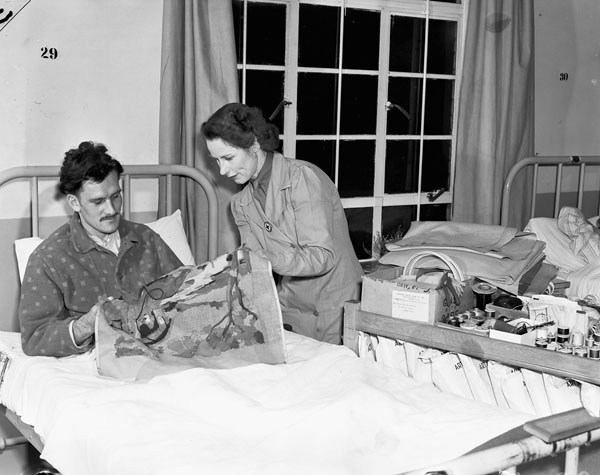Psychiatry was a relatively new field when Canada went to war in 1939. The establishment in 1940 of the No. 1 Neurological Hospital (or No. 1 Nuts as the group was known), in Basingstroke, England, to deal with neuropsychiatric cases was thus a milestone in Canadian Military History. Here the staff assessed a number of men who had become stress casualties, during the Blitz. Terry Copp and Bill McAndrew noted in their work Battle Exhaustion, that a number of men riding motorcycles on the wrong side of the road during the blackouts caused not only accidents but post-traumatic anxieties as well. Some of these unfortunate men were treated to an "electric wire brush treatment", but most were diagnosed, treated to some psychotherapy and sent on their way.
With little in the way of psychological screening for the original members of the 1st Canadian Division, a number of soldiers with previous records of neurosis had been enlisted and were visiting the hospital. H.H. Hyland, who had worked in the Toronto General Hospital in the interwar years, was not convinced anything could be done for these men. Alcoholics and the occasional psychopath that graced Basinstroke's halls were also deemed incurable. Hyland was determined that these men should be returned to Canada, but that policy was soon found to be troublesome. When administrators told one "chronic bedwetter" that he would be returned to Canada, the other patients soon caught wind of the news. As Copp and McAndrew note, "by next morning word had spread and the ward stank of urine."
A wartime article by Hyland on neuroses cases at No. 1 Neurological Hospital:
http://www.ncbi.nlm.nih.gov/pmc/articles/PMC1827527/pdf/canmedaj01696-0113.pdf

No comments:
Post a Comment